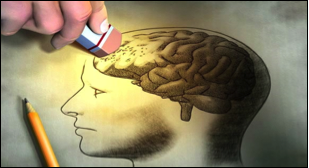It is surprising to find the number of myths that surround someone's road to recovery away from substance abuse. Such myths cloud the judgment of the person who suffers and can affect the way he or she deals with the recovery process. Substance abuse is a serious concern not only for the person in question and his or her family and friends, but for the society as a whole. It defines how the future generation will shape up and can make or break the societal system. When an individual, who is a crucial part of society, makes a mistake and wants to amend ways, he or she should be given complete support and be empathized with, instead of being shunned away and his intentions shrouded in a mist of myths.
Top 5 Myths About Addiction Recovery

SOURCE: narcanon.org
1. Substance addiction is a personal choice.
A person who starts using drugs as a recreational behavior, just like smoking or consuming alcohol, is often labeled as one who is voluntarily falling into the trap of addiction, that too, knowingly. When treatment begins, people often think of the affected as wholly and solely responsible for their condition, hence depriving them of all sympathy and empathy.
2. Substance abuse treatment is a one-shot deal.
Substance abuse treatment, like many other disorders that fester over time, needs prolonged attention and continued care. The affected person, his friends and family, need to provide emotional and psychological support in the time of crisis. The treatment is not a month-long program that can be enrolled in and completed within a stipulated time. It is a commitment to oneself and a promise that the affected person will care about himself or herself more than his or her weaknesses. Only when the treatment is continued for a long period of time can it truly be effective.
3. People can stop using drugs at will, they do not need treatment.
This is the most illogical myth. When an illness or disorder cannot be overcome at will, then substance abuse can't either. It is much like any other physical or psychological illness. In fact, it is a combination of the two. The mind and the body are both weakened due to substance abuse, due to which the person loses the ability to make wise decisions and cannot extradite himself from the trap of drugs or alcohol or other substances. They need help in making the decision and following it through.

SOURCE: mensxp
4. There is a standard treatment program for everyone.
Every person reacts to substance overuse in his or her own way. Some become wildly eccentric, while others become reclusive and depressed. All symptoms are indicative of substance abuse and vary depending on the person's personality and inclination, along with their background and past. Since the symptoms and reactions to substance abuse are not the same, the treatment given to these individuals has to cater to their problems and cannot be a simple 'flush the drugs out' therapy. Treatment involves use of medication, therapy, counselling, emotional and psychological support and a lot of hand holding so that the person realizes that there is a great life beyond drugs or alcohol.
5. Treatment does not work.
The negative attitude is a bane not just for the individual, but the entire society. If we, as a society, discard our members because of certain weaknesses, then very soon we may not have any members. We need to be more accepting and adopt a positive attitude towards those who choose to reform. Reformative thinking is very crucial in substance abuse treatment. Someone who shows any willingness to seek help has taken a huge step, and the rest of the way can be made easier with a lot of positive thinking and empathetic attitude.
Substance abuse treatment is not an easy road to take, but it can be made easier with support and sympathy.
Sources:
- Phoenixhouse.org
- Waysidehouse.org


